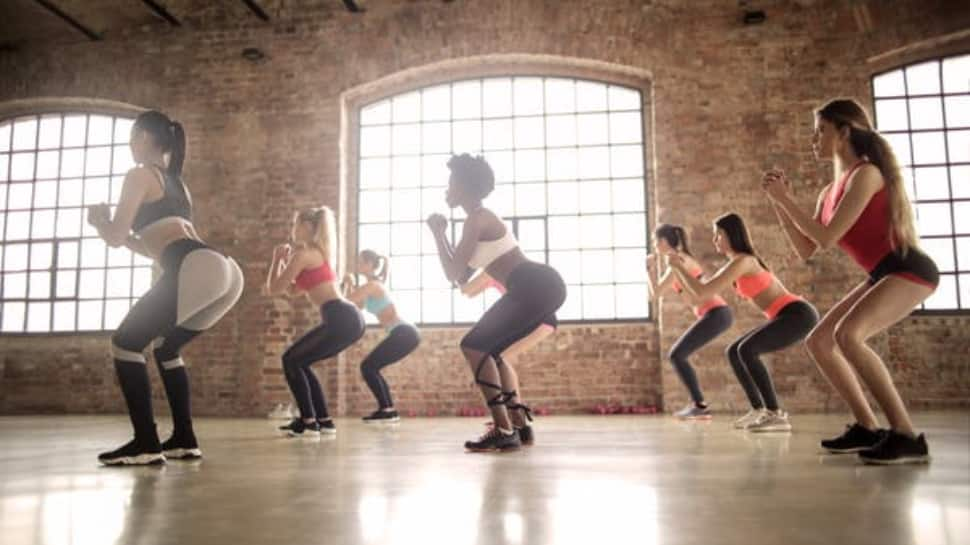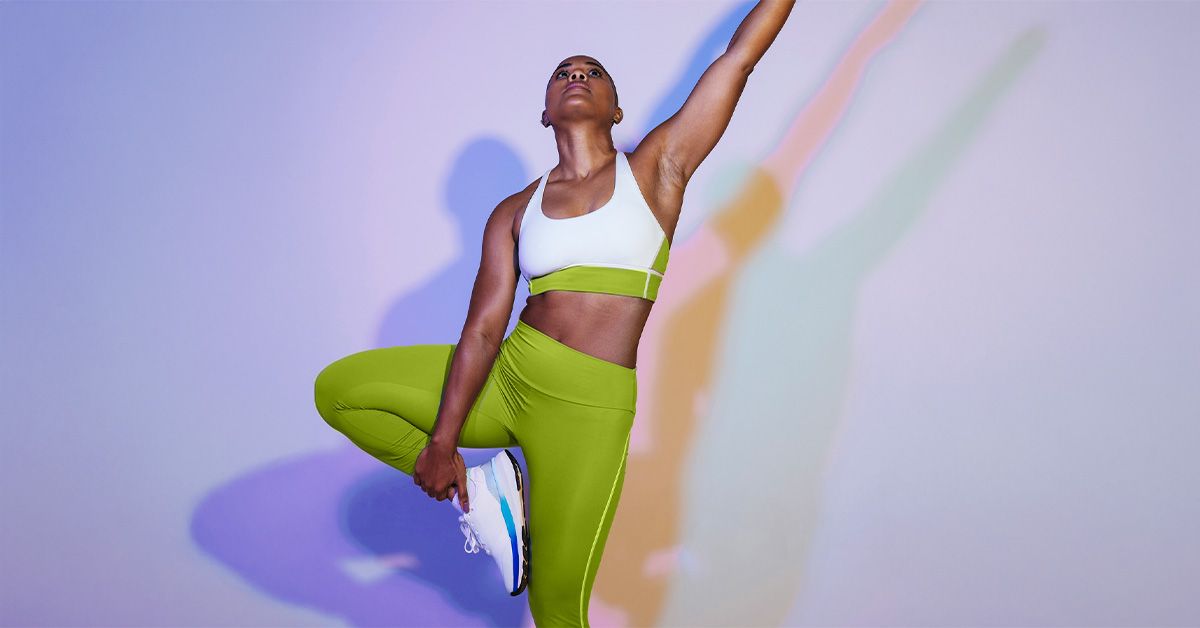Fitness
Gym Workout: 3 Common Squat Mistakes You Should Avoid While Exercising

Daily workout: The squat is part of any essential workout if you want to get fantastic results in the gym, build muscle, and get ripped. Over time, squats in your exercise can help you increase your overall strength and size since they train almost all of the muscles in your body and trigger significant growth.
Squats are sometimes referred to as “the king of exercises” because of both their physical and hormonal effects. Heavy barbell squats help the body generate testosterone and HGH, both of which are essential for muscular building not only in the legs but throughout the entire body, according to several studies.
Squatting benefits a whole lot of muscles including the glutes, hamstrings, quadriceps, calves and erector spinae muscles. Additionally, it helps maintain the strength and condition of the knee and ankle joints, preventing aches and pains in old age. Before creating a training plan for a specific person, some fitness instructors also use it as a tool to assess a person’s strength and flexibility.
Squats can be performed with or without weights; however, depending on your fitness objectives and physical condition, it is advised that you move to weights as your training advances.
Squat is a great lower body exercise but a lot of people make these 3 common mistakes which lead to sub-maximal performance in this exercise.
Hyperextension of the Neck
Looking up at the ceiling puts a lot of stress on the neck and doesn’t assist keep the spine neutral.
Fixing your eyes on an area of the ground in front of you can aid in maintaining a stable spine posture.
Incomplete Range of Motion
It is not optimal to sit down halfway and then stand back up. If your mobility permits, move parallel or a bit lower.
Knees Caving While Standing
Make sure you are thrusting your knees out when you sit down and rise. A lot of individuals tend to tuck their knees inward while rising from the bottom position, which can be caused by weak adductor muscles.
Squats are known as a functional activity because, like it or not, everyone naturally does them throughout the day. You must stoop down and stand up whether getting out of a chair, going up stairs, or picking something up off the floor. In a sense, you are doing squats all day long in one manner or another.
Squats are undoubtedly among the most useful workouts known. Consider how much you squat in your regular activities, such as getting in and out of bed and chairs, sitting in an office chair, and more.
(This article is meant for informational purposes only and must not be considered a substitute for advice provided by qualified medical professionals.)

Fitness
Man who lost 50 kg reveals ‘best exercise routine for permanent weight loss’

Dec 21, 2024 07:51 AM IST
Losing weight doesn’t have to be complicated, but with so much information available, it can be confusing. Here’s something that could aid your weight loss.
Fitness
Does exercise sharpen your memory? How long do the benefits last? New research

Most of us have forgotten where we put our phones or car keys or what we ate for dinner last night. We’ve walked into a room and wondered why we even walked in there in the first place. A sharper memory helps us retain the information we’ve learned and remember what’s important. We’re always hearing about this superfood or this special drink or supplement that can boost memory, and we wonder if there’s any merit to many of these claims.
With all the benefits of exercise, from lowering blood pressure to perking up your mood, researchers wanted to explore if exercise could boost memory and how long these benefits last. If working out is effective, how many hours or days do those short-term cognitive benefits last? Does working out the day before improve your memory the following day? Let’s look at the new research.
The study
In a small study published in the International Journal of Behavioral Nutrition and Physical Activity, researchers analyzed data from 76 adults. Participants were aged 50 to 83. Over eight days, participants took daily cognitive tests and wore activity trackers.
The results

Researchers revealed that participants who engaged in more moderate to vigorous physical activity performed better in memory tests the following day. The adults who had better scores on the memory tests:
Moderate activity can include brisk walking, cycling, or jogging. Participants who spent more time being sedentary performed worse on the tests.
Previous research

This isn’t the first study to associate exercise with a better memory, and it certainly won’t be the last. Research has shown that moving your muscles enhances your neuronal activity, which refers to the chemical and electrical signals generated and transmitted by neurons in your brain. Previous studies found that people had better results on memory tests in the hours following exercise, but researchers weren’t sure how long these positive effects stick around.
Interestingly, researchers in one study determined that high-intensity interval training or HIIT and cycling were the types of exercise most likely to enhance memory, executive function, attention, and information processing.
Why does exercise improve recollection and cognition?

Researchers and experts believe exercise can improve memory and cognition by increasing blood flow and stimulation of neurotransmitters. Neurotransmitters help transmit messages between nerve cells to assist memory and thinking. Exercise can also prompt the hippocampus to form new neurons. The hippocampus in your brain plays a big role in your learning and recollection.
Neuroplasticity of the brain

Research highlights that exercise promotes neuroplasticity in the brain. Neuroplasticity refers to your brain’s ability to adapt and form synaptic connections, particularly in response to learning, experience, or after an injury.
The takeaway

Spending less time sitting and getting a minimum of 6 hours of sleep every night is beneficial for your mental faculties and overall health. If you get a good workout in the day before, your mind and memory could be sharper the following day. It turns out that working out really could enhance your memory, at least for the next 24 hours, which is worth keeping in mind if you have a big presentation or test coming up. The research is mounting.
Fitness
Lift in gym to lift your mood: Study shows getting ripped reduces depression risk

Dec 20, 2024 06:22 PM IST
Building muscle may as well be building a mental fortitude as a study reveals that muscle mass strength lowers depression risk.
-

 Politics1 week ago
Politics1 week agoCanadian premier threatens to cut off energy imports to US if Trump imposes tariff on country
-
/cdn.vox-cdn.com/uploads/chorus_asset/file/25782636/247422_ChatGPT_anniversary_CVirginia.jpg)
/cdn.vox-cdn.com/uploads/chorus_asset/file/25782636/247422_ChatGPT_anniversary_CVirginia.jpg) Technology1 week ago
Technology1 week agoInside the launch — and future — of ChatGPT
-
/cdn.vox-cdn.com/uploads/chorus_asset/file/25789444/1258459915.jpg)
/cdn.vox-cdn.com/uploads/chorus_asset/file/25789444/1258459915.jpg) Technology1 week ago
Technology1 week agoOpenAI cofounder Ilya Sutskever says the way AI is built is about to change
-

 Politics1 week ago
Politics1 week agoU.S. Supreme Court will decide if oil industry may sue to block California's zero-emissions goal
-
/cdn.vox-cdn.com/uploads/chorus_asset/file/25546252/STK169_Mark_Zuckerburg_CVIRGINIA_D.jpg)
/cdn.vox-cdn.com/uploads/chorus_asset/file/25546252/STK169_Mark_Zuckerburg_CVIRGINIA_D.jpg) Technology1 week ago
Technology1 week agoMeta asks the US government to block OpenAI’s switch to a for-profit
-

 Politics1 week ago
Politics1 week agoConservative group debuts major ad buy in key senators' states as 'soft appeal' for Hegseth, Gabbard, Patel
-

 Business5 days ago
Business5 days agoFreddie Freeman's World Series walk-off grand slam baseball sells at auction for $1.56 million
-
/cdn.vox-cdn.com/uploads/chorus_asset/file/23951353/STK043_VRG_Illo_N_Barclay_3_Meta.jpg)
/cdn.vox-cdn.com/uploads/chorus_asset/file/23951353/STK043_VRG_Illo_N_Barclay_3_Meta.jpg) Technology5 days ago
Technology5 days agoMeta’s Instagram boss: who posted something matters more in the AI age




















